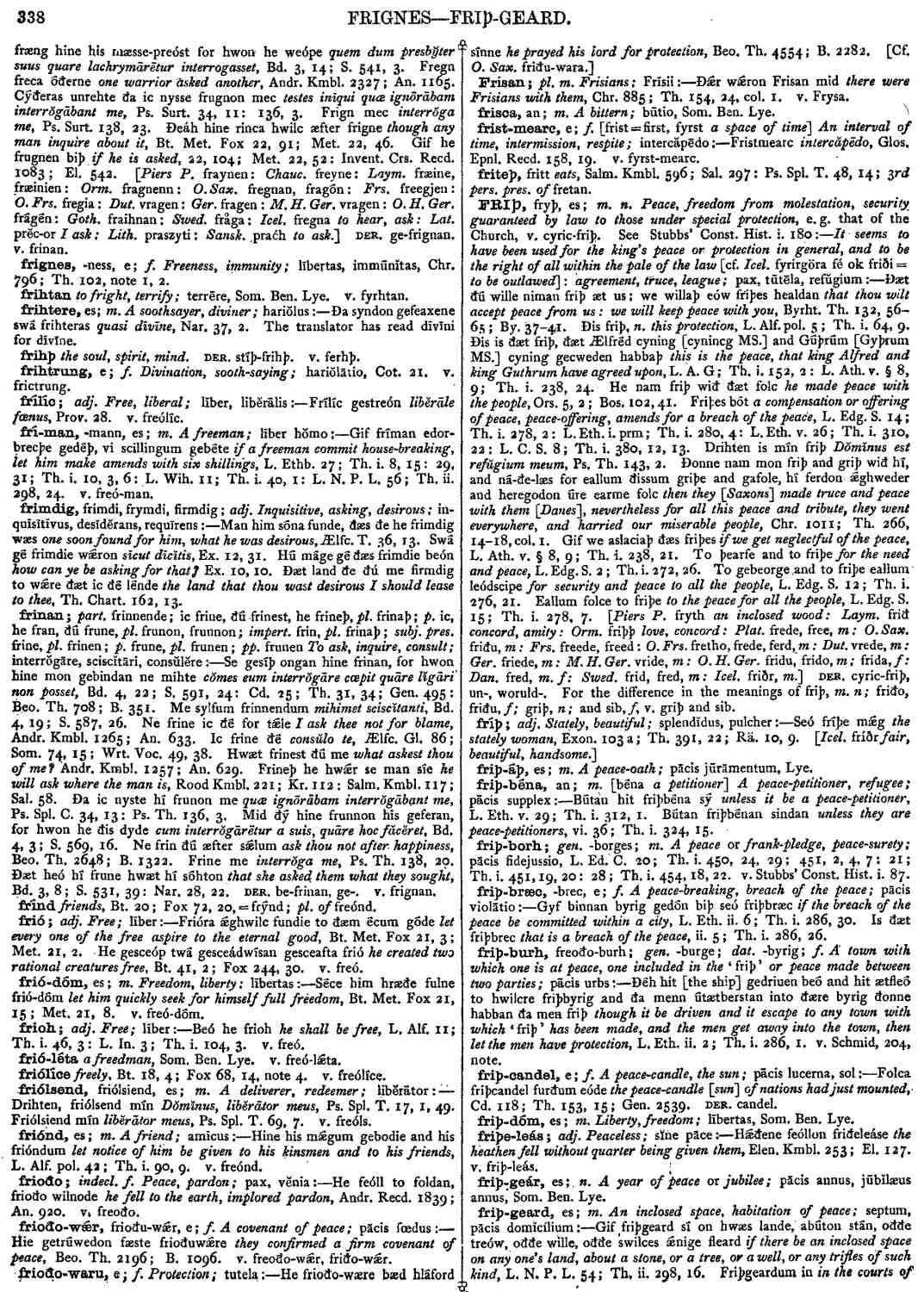FRIÞ
- noun [ masculinefeminineneuter ]
-
Ðæt ðú wille niman friþ æt us: we willaþ eów friþes healdan
that thou will accept peace from us: we will keep peace with you,
- Byrht. Th. 132, 56-65 ;
- By. 37-47.
-
Ðis friþ,
n. this protection,
- L. Alf. pol. 5 ;
- Th. i. 64, 9.
-
Ðis is ðæt friþ, ðæt Ælfréd cyning [cynincg MS.] and Gúþrúm [Gyþrum MS.] cyning gecweden habbaþ
this is the peace, that king Alfred and king Guthrum have agreed upon,
- L. A. G ;
- Th. i. 152, 2: L. Ath. v. § 8, 9 ;
- Th. i. 238, 24.
-
He nam friþ wið ðæt folc
he made peace with the people,
- Ors. 5, 2 ;
- Bos. 102, 41.
-
Friþes bót
a compensation or offering of peace, peace-offering, amends for a breach of the peace,
- L. Edg. S. 14 ;
- Th. i. 278, 2: L. Eth. i. prm ;
- Th. i. 280, 4: L. Eth. v. 26 ;
- Th. i. 310, 22: L. C. S. 8 ;
- Th. i. 380, 12, 13.
-
Drihten is mín friþ
Dŏmĭnus est refŭgium meum,
- Ps. Th. 143, 2.
-
Ðonne nam mon friþ and griþ wið hí, and ná-ðe-læs for eallum ðissum griþe and gafole, hí ferdon ǽghweder and heregodon úre earme folc
then they [Saxons] made truce and peace with them [Danes], nevertheless for all this peace and tribute, they went everywhere, and harried our miserable people,
- Chr. 1011 ;
- Th. 266, 14-18, col. 1.
-
Gif we aslaciaþ ðæs friþes
if we get neglectful of the peace,
- L. Ath. v. § 8, 9 ;
- Th. i. 238, 21.
-
To þearfe and to friþe
for the need and peace,
- L. Edg. S. 2 ;
- Th. i. 272, 26.
-
To gebeorge and to friþe eallum leódscipe
for security and peace to all the people, L.
- Edg. S. 12 ;
- Th. i. 276, 21.
-
Eallum folce to friþe
to the peace for all the people,
- L. Edg. S. 15 ;
- Th. i. 278, 7.
Bosworth, Joseph. “FRIÞ.” In An Anglo-Saxon Dictionary Online, edited by Thomas Northcote Toller, Christ Sean, and Ondřej Tichy. Prague: Faculty of Arts, Charles University, 2014. https://bosworthtoller.com/12425.
Checked: 1